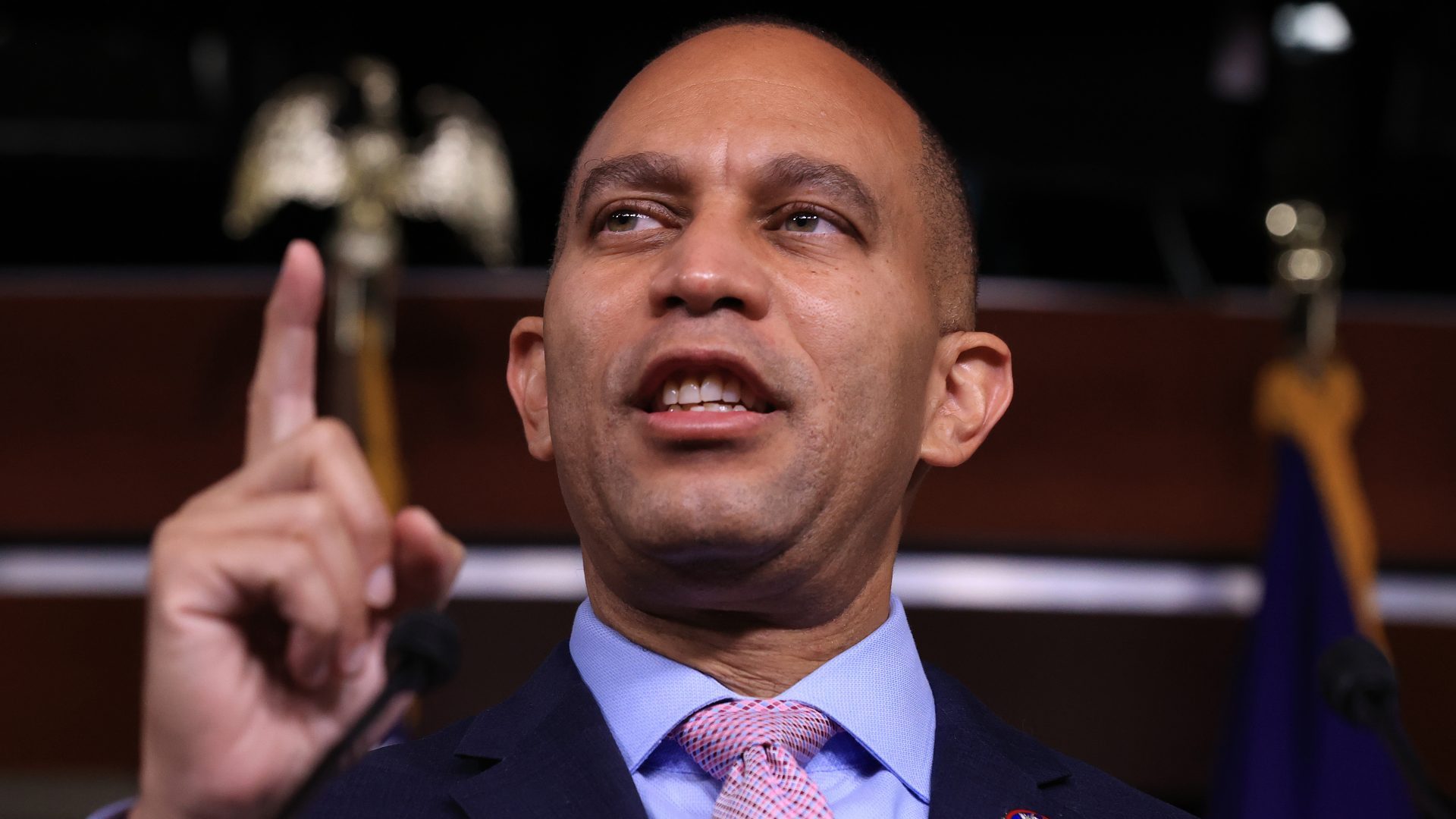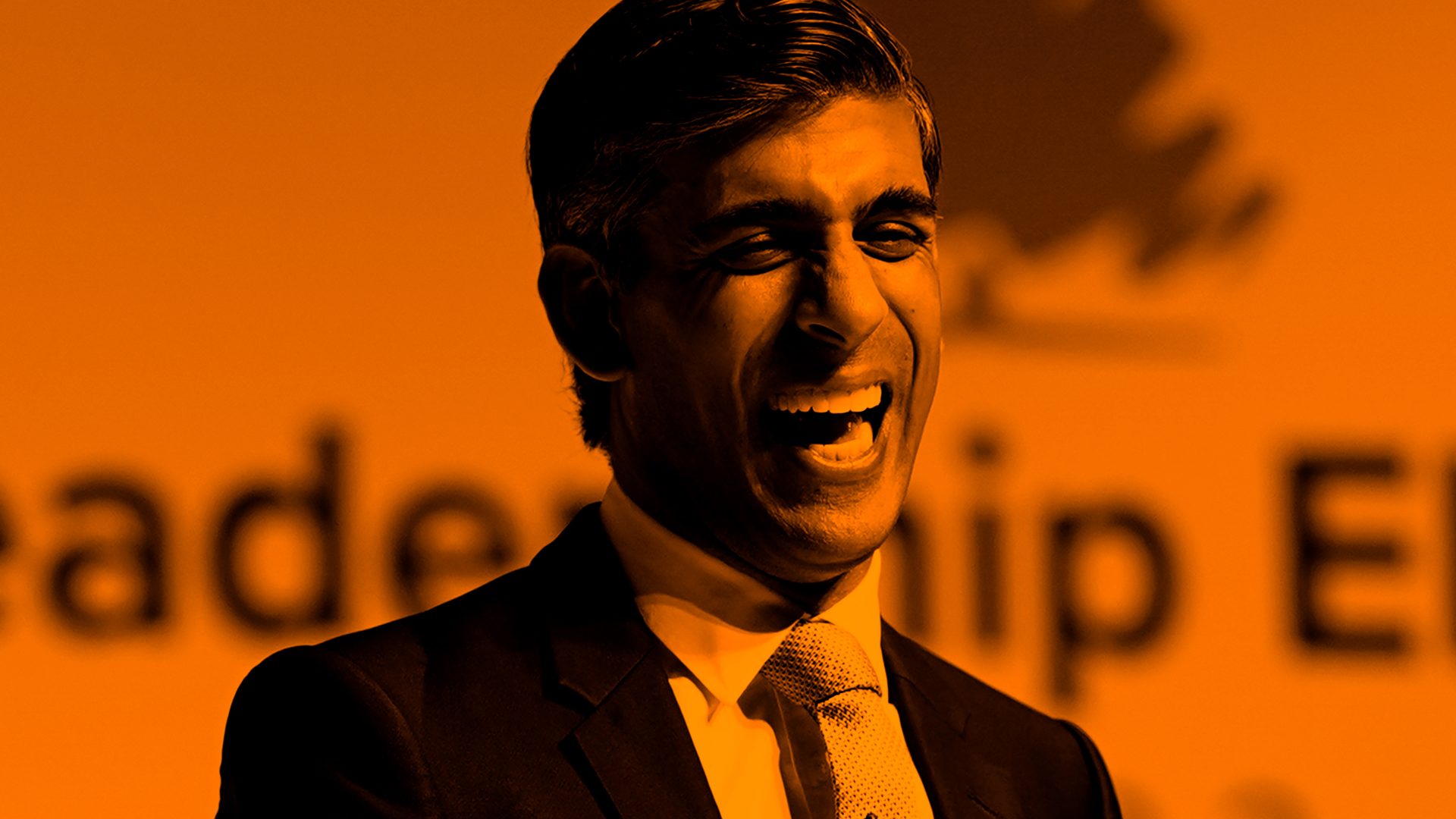Hakeem Sekou Jeffries, the new minority leader of the US House of Representatives and the first person of colour in US history to lead a political party in Congress, is no radical nor agent of change.
Black radicals, especially on the left, do not usually rise in major US political parties. This is a fact not lost on younger people.
Yet the US that Jeffries was born into, on August 4, 1970, may have led you to believe that the future for African American politicians, and for African American people in general, would be – had to be – different.
On August 7, 1970, a group of young African American men led an armed assault on the courthouse in Marin County, California. They demanded the release of one of their number, a man accused of stabbing a prison guard during an uprising.
Some time earlier, Angela Davis, a young African American philosopher, professor, activist, and icon for the young women of my generation, bought a shotgun. Someone sawed off the barrel.
That sawn-off shotgun was one of three guns brought into the courtroom on August 7. All of the guns were alleged to have been registered to Sister Davis. A gun was thrown to the defendant, a member of the Black Panther Party. Hostages were taken, including the judge.
The demands were for the release of the man on trial and others they declared “hostages”. Eventually, a shoot-out occurred, and the judge was killed, as well as the three Black Panthers who had disrupted the court proceedings.
I can still see the FBI “Wanted” poster for Angela Davis. It was shocking.
She went on the run, was captured, President Nixon congratulated the Feds, a trial followed, and she was exonerated.
It looked, back then, that to be an African American in politics, especially in a mainstream party, was to be a person who would carry a legacy of struggle, a legacy of “the street”. Maybe not an overt one, but something that reflected the past, the work done, the things learned.
This may no longer be true at the top, where Jeffries is, but perhaps it still is at the grassroots level. And this may be one of the reasons that the African American vote is “depressed”, lacking the zeal of the LBJ, Clinton and Obama eras. Caution and angst prevails. This is a big danger for the Democrats. Because African Americans are part of the base of the Party. The reliable.
Jeffries, and the two other members of the House Democratic Party leadership represent what the party thinks it is, and what it aims to be. The minority whip is a white woman, Katherine Clark of Massachusetts. The Democratic caucus – a grouping of all Democrats in the House, and the body which nominates and elects its leaders – is chaired by Pete Aguilar, a Latino congressman from California.
Meanwhile, it is joked that on the Republican side, there are more guys called Mike in charge of committees or sitting on them than there are women in positions in power. So the Dems look really good, and all of this is noticed by the public.
But will the choice of Hakeem Jeffries continue the “moderate” trend of African American leaders? He has to hold together a caucus in the House which has no power except to oppose, and has to keep that progressive wing of the Dems onside through to the general election in 2024. It is said that he is sometimes in contention with the Democrats’ left flank, as his predecessor Nancy Pelosi had been.
Yet like her, Jeffries has the advantage of no one really knowing exactly what his politics are.
He came through the New York State Democratic political machine. That might say it all.
There are those who complain that once in positions of power, African American political superstars like Jeffries can lose touch with the grassroots who elected them, as they make their way to the top. And that both Democrats and Republicans implicitly encourage this.
But talking about racial matters is in vogue at the moment – look at the big shift the Golden Globe awards has taken after being boycotted big-time for not being inclusive. One actor said backstage at the awards ceremony: “I’m because I’m black. “
Jeffries has to be careful. He has to act like a leader – not look like he favours one group, understands one group more than another.
Despite being regarded by some as a moderate, he is a member of the Congressional Progressive Caucus, the largest ideological caucus in the Democratic Party. He backed the drive against police brutality. But he does not back, so far, the Green New Deal, part-sponsored by Alexandria Ocasio-Cortez. It has been written that he has said: “There will never be a moment where I bend the knee to hard-left democratic socialism.”
Maybe he will change this harsh language. If he follows African American leaders in the last Congress, his views may even become more moderate; closer to the Establishment.
He may even have to resort to what some disdainfully called President Obama’s “universal rhetoric”. Just to keep everyone on side.
According to stats from the data website FiveThirtyEight, federal policies with no white support have a 10% chance of becoming enacted. Universal white support enables a policy to have a 60% chance.
On the other hand, a proposal with no African American support still has a 40% chance of becoming a law. A policy with all African American support has only a 30% chance of becoming a law. So, as more African Americans support a policy, the chances of it becoming law actually declines.
Hakeem Sekou Jeffries, the record shows, is a champion of the causes and the lives of African Americans and other people of colour; and of the poor; the disadvantaged and of women. All of this will serve him and save him in the battle ahead, as a militant Republican Party with a minuscule majority attempts to undo everything that the Democrats have done. They intend to “investigate the investigators”; possibly impeach Joe Biden; and rescind one of Trump’s impeachments, probably the one for inciting the insurrection at the Capitol two years ago.
This new Congress will be the setting for the fight for the soul of America: the hallmark of the next general election in 2024.
The America that Hakeem Jeffries was born into, that late summer of 1970, seemed to be a place in which the old contradictions and evils would finally meet for a final battle, as a new generation came on stream. That battle is yet to come.
Mark Twain once wrote about us Americans that “we are fearfully and wonderfully made, and we glorious Americans will occasionally astonish the God that created us when we get a fair start.” We shall see.




